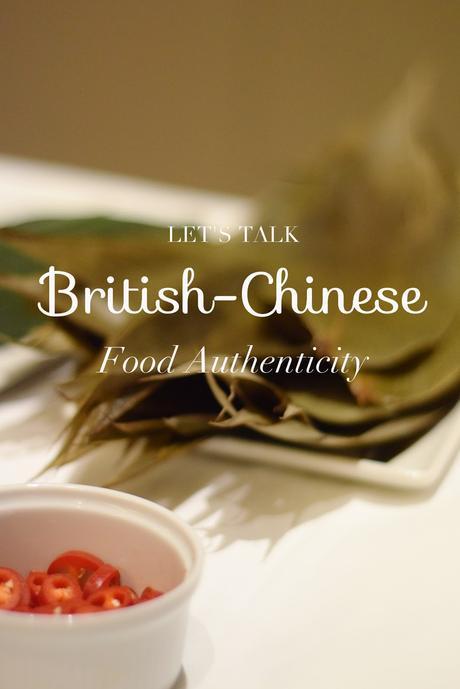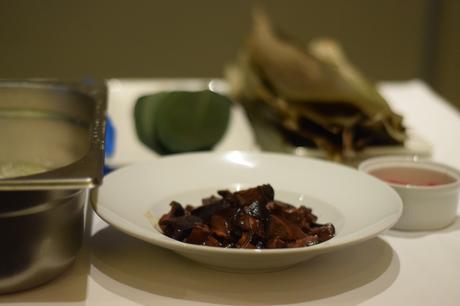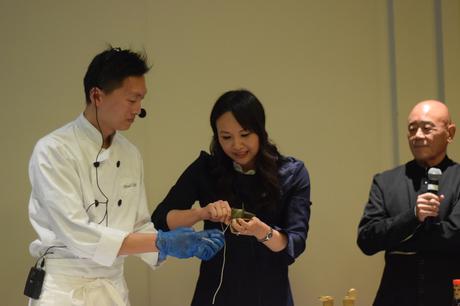Cultural identity
Hong Kong’s cultural identity - and indeed the identity of us Chinese - is something that I hold close to my heart. For as long as I can remember, I’ve battled with the representation of Asians in the media and on a more local, personable scale, I’ve questioned authenticity, I’ve felt at odds between my life as a British-born Chinese (BBC) and the immigrant lives of my parents before me. I’ve even, previously, distanced myself from being Chinese, for fear of being so unbelievably different from all of my peers. These days, I am proud to be a little more vocal about the struggles we face as first generation BBCs and of my small but mighty attempts to break down the ‘rules’ and norms and ignorant beliefs that so often surround my culture.Lee Kum Kee, a heritage Hong Kong company that pioneered cooking sauces, sponsored the Hong Kong Intangible Cultural Heritage Festival earlier this week and I was over the moon to be granted the opportunity to head along to some symposiums and the evening event. Growing up in England means that I didn’t learn about the history of China and Hong Kong and I make a marked effort to educate myself as much as I can. Miniature history lessons aside, I then attended an open forum between Ken Nom O.B.E. (I know!!), Ching He-Huang, Andy Kwok and Andrew Wong - four of the most well-known and respected Chinese chefs/restauranteurs - that moved into a brilliant discussion about authenticity and bridging cultures across the globe.
An open forum
Opening up the discussion around food authenticity, the restauranteurs created a brilliant discourse around how cuisine mirrors culture and vice versa. I myself am very interested in this branch of representation and often find it’s like pulling teeth to ‘convince’ people of the authenticity of Chinese foods I present to my peers and, likewise, the authenticity of my opinions and views of things.Ken Hom O.B.E. started by questioning ‘is anything authentic?’ when quizzed about the authenticity of British-Chinese food. To put things frankly, Chinese people are typically business-minded and we create food and menus that sell, regardless of their ‘authenticity’. The classic ‘curry and chips’ dish that I’m sure so many of my readers order from their local takeaway isn’t authentic by any means. In fact, I’m sure you’d be laughed at in Hong Kong should you attempt to order that. A business requires revenue to thrive and if a disingenuous dish seems to sell well, the menu will evidently sway with the tide. Hom noted that food evolves like and with society and with every new restaurant and opening, reinterpretations of a dish are inevitable. He stated that the concept of British-Chinese food authenticity revolved around three things: ‘good taste, good execution, and service that cannot be faulted’.
The brains behind A Wong, a fine Chinese dining restaurant, Andrew Wong noted that cuisine moves and transcends with time. It is only expected, after all, that ingredients are borrowed from across the globe as people’s tastes evolve and become hungry for newness and as business thrives globally, benefitting largely from international trade. Wong noted how he likened his restaurants to a ‘snapshot into cuisine of the moment’, capturing a particular trend and the tastes of the time in a flavor.
As flavours grow and move, who is to decide what is and isn’t authentic? Isn’t authenticity an emotional concept? You may realize that your idea of authentic cuisine lies largely in your very first experiences with the new cuisine, thus highlighting how authenticity must be learned by the individual, the consumer.
Capturing spirit and authenticity
Celebrity chef Ching He took charge of the media portrayal of food authenticity. ‘There’s nothing more powerful than the medium of film, capturing how people in China cook, as well as their spirit.’For me, a huge part of Chinese food authenticity is in the spirit: the sharing culture, the way dishes are presented and laid out on the table to encourage fortune and good health, the symbolism of the dishes themselves. Sadly much of this is done away with in a takeaway which is also sadly how our food is perceived nowadays: a cheap eat full of false flavor that seems to be both a token of Friday night honor and shameful Saturday morning. Chinese food, to me, is a meat dish, steamed fish dish and vegetable fish, shared amongst the family with fluffy boiled rice and garlic and spring onion sauces. It is eight dishes for Chinese New Year, huge hot pot gatherings where you stand and cook food in the middle, it is loud environments and special ways of tapping the table to thank a younger guest for tea, chopstick etiquette and eating dim sum for breakfast. It’s eating dim sum in special ways depending on the type of dumpling and the type of pastry. It isn’t necessarily the flavor but it is a little about understanding how flavours work together and the reasons for the way that dish came about.
A big thank you to Lee Kum Kee for bringing me along to the festival. Up next? Cooking with Mama Daisy…
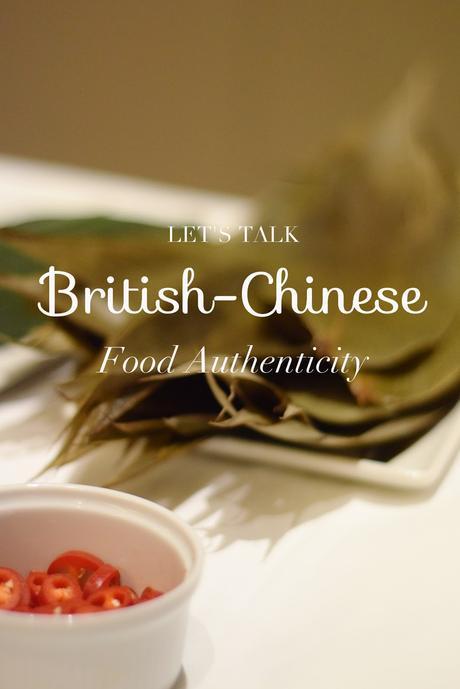
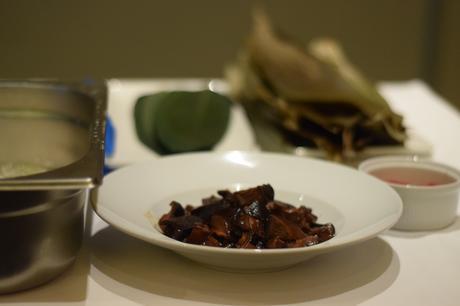
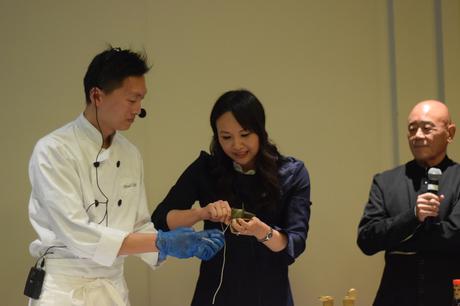
Food, a token of Hong Kong’s identity
24.5.17 Whenever I mention my stint of living in Hong Kong, I’m met with a handful of reactions, one of which is usually ‘OMG THE FOOD’. 2017 marks 20 years of Hong Kong’s independence as a Special Administrative Region of China and, so, there are global celebrations being held to mark the occasion. I distinctly remember watching the handover in 1997: I was perched in the customer waiting area of Honda whilst my parents exchanged on a shiny new motor (it was red and had satisfyingly soft buttons and plush leather seats), wrecking the coffee machine and being told by my Granny that that was a very special day.Cultural identity
Hong Kong’s cultural identity - and indeed the identity of us Chinese - is something that I hold close to my heart. For as long as I can remember, I’ve battled with the representation of Asians in the media and on a more local, personable scale, I’ve questioned authenticity, I’ve felt at odds between my life as a British-born Chinese (BBC) and the immigrant lives of my parents before me. I’ve even, previously, distanced myself from being Chinese, for fear of being so unbelievably different from all of my peers. These days, I am proud to be a little more vocal about the struggles we face as first generation BBCs and of my small but mighty attempts to break down the ‘rules’ and norms and ignorant beliefs that so often surround my culture.Lee Kum Kee, a heritage Hong Kong company that pioneered cooking sauces, sponsored the Hong Kong Intangible Cultural Heritage Festival earlier this week and I was over the moon to be granted the opportunity to head along to some symposiums and the evening event. Growing up in England means that I didn’t learn about the history of China and Hong Kong and I make a marked effort to educate myself as much as I can. Miniature history lessons aside, I then attended an open forum between Ken Nom O.B.E. (I know!!), Ching He-Huang, Andy Kwok and Andrew Wong - four of the most well-known and respected Chinese chefs/restauranteurs - that moved into a brilliant discussion about authenticity and bridging cultures across the globe.
An open forum
Opening up the discussion around food authenticity, the restauranteurs created a brilliant discourse around how cuisine mirrors culture and vice versa. I myself am very interested in this branch of representation and often find it’s like pulling teeth to ‘convince’ people of the authenticity of Chinese foods I present to my peers and, likewise, the authenticity of my opinions and views of things.Ken Hom O.B.E. started by questioning ‘is anything authentic?’ when quizzed about the authenticity of British-Chinese food. To put things frankly, Chinese people are typically business-minded and we create food and menus that sell, regardless of their ‘authenticity’. The classic ‘curry and chips’ dish that I’m sure so many of my readers order from their local takeaway isn’t authentic by any means. In fact, I’m sure you’d be laughed at in Hong Kong should you attempt to order that. A business requires revenue to thrive and if a disingenuous dish seems to sell well, the menu will evidently sway with the tide. Hom noted that food evolves like and with society and with every new restaurant and opening, reinterpretations of a dish are inevitable. He stated that the concept of British-Chinese food authenticity revolved around three things: ‘good taste, good execution, and service that cannot be faulted’.
The brains behind A Wong, a fine Chinese dining restaurant, Andrew Wong noted that cuisine moves and transcends with time. It is only expected, after all, that ingredients are borrowed from across the globe as people’s tastes evolve and become hungry for newness and as business thrives globally, benefitting largely from international trade. Wong noted how he likened his restaurants to a ‘snapshot into cuisine of the moment’, capturing a particular trend and the tastes of the time in a flavor.
As flavours grow and move, who is to decide what is and isn’t authentic? Isn’t authenticity an emotional concept? You may realize that your idea of authentic cuisine lies largely in your very first experiences with the new cuisine, thus highlighting how authenticity must be learned by the individual, the consumer.
Capturing spirit and authenticity
Celebrity chef Ching He took charge of the media portrayal of food authenticity. ‘There’s nothing more powerful than the medium of film, capturing how people in China cook, as well as their spirit.’For me, a huge part of Chinese food authenticity is in the spirit: the sharing culture, the way dishes are presented and laid out on the table to encourage fortune and good health, the symbolism of the dishes themselves. Sadly much of this is done away with in a takeaway which is also sadly how our food is perceived nowadays: a cheap eat full of false flavor that seems to be both a token of Friday night honor and shameful Saturday morning. Chinese food, to me, is a meat dish, steamed fish dish and vegetable fish, shared amongst the family with fluffy boiled rice and garlic and spring onion sauces. It is eight dishes for Chinese New Year, huge hot pot gatherings where you stand and cook food in the middle, it is loud environments and special ways of tapping the table to thank a younger guest for tea, chopstick etiquette and eating dim sum for breakfast. It’s eating dim sum in special ways depending on the type of dumpling and the type of pastry. It isn’t necessarily the flavor but it is a little about understanding how flavours work together and the reasons for the way that dish came about.
A big thank you to Lee Kum Kee for bringing me along to the festival. Up next? Cooking with Mama Daisy…
